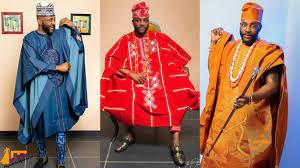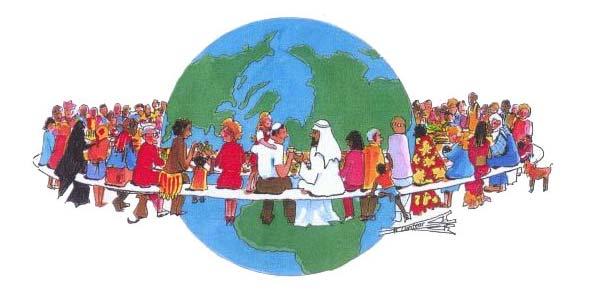Cultures around the world...
European cultures.
"The wave of the future is not the conquest of the world by a single dogmatic creed but the liberation of the diverse energies of free nations and free men"
Europe is a continent known for its diverse cultures, rich history, and significant contributions to art, literature, philosophy, and science. Here are some examples of European cultures:
Western European Cultures:
British Culture: British culture encompasses England, Scotland, Wales, and Northern Ireland. It is known for its literature (Shakespeare, Jane Austen), iconic landmarks (like Big Ben and Stonehenge), music (The Beatles, classical composers), sports (football, cricket), afternoon tea, and cultural events like the Notting Hill Carnival and Edinburgh Festival.
"Culture is the widening of the mind and of the spirit."
French Culture: French culture is renowned for its contributions to art, fashion (Paris is a fashion capital), cuisine (French cuisine is celebrated worldwide), wine production, literature (authors like Victor Hugo and Marcel Proust), film industry (Cannes Film Festival), and landmarks like the Eiffel Tower and Louvre Museum.
"Culture is a way of coping with the world by defining it in detail"
German Culture: German culture is known for its contributions to classical music (Beethoven, Bach), philosophy (Kant, Nietzsche), literature (Goethe, Kafka), engineering and technology, Oktoberfest (world's largest beer festival), Christmas markets, and the historic landmarks of Berlin.
Eastern European Cultures:
Russian Culture: Russian culture is renowned for its literature (Tolstoy, Dostoevsky), ballet (Bolshoi Theatre), classical music (Tchaikovsky, Rachmaninoff), iconic landmarks (Red Square, Saint Basil's Cathedral), traditional cuisine (borscht, caviar), and rich folklore traditions.
"To merely observe your culture without contributing to it seems very close to existing as a ghost"
Polish Culture: Polish culture is characterized by its history, traditions, and arts. It includes classical music (Chopin), literature (Wislawa Szymborska), Polish cuisine (pierogi, kielbasa), traditional festivals (such as St. John's Eve and Christmas traditions), and medieval architecture (like Krakow's Old Town and Wawel Castle).
"That is true culture which helps us to work for the social betterment of all"
Hungarian Culture: Hungarian culture is known for its unique language, folk traditions (including music and dance), thermal baths (like the Széchenyi Baths in Budapest), delicious cuisine (goulash, chimney cake), rich history, and impressive architecture (such as the Hungarian Parliament Building).
Southern European Cultures:
Italian Culture: Italian culture is famous for its art (Michelangelo, Leonardo da Vinci), architecture (Colosseum, Florence Cathedral), fashion (Milan is a fashion hub), cuisine (pizza, pasta, gelato), opera (La Scala), vibrant festivals (like Carnival in Venice), and love for football (soccer).
"Without culture, and the relative freedom it implies, society, even when perfect, is but a jungle. This is why any authentic creation is a gift to the future"
Spanish Culture: Spanish culture is characterized by its flamenco music and dance, bullfighting, siesta tradition, vibrant festivals (such as La Tomatina and Running of the Bulls), Moorish-influenced architecture (like Alhambra), delicious cuisine (paella, tapas), and world-renowned artists (such as Picasso and Gaudí).
"In an immature society culture is an import; for a mature one it is a native manufacture which eventually becomes an export"
Greek Culture: Greek culture has a rich ancient history, known for its contributions to philosophy (Socrates, Aristotle), mythology (Greek gods and goddesses), ancient architecture (Parthenon, Acropolis), literature (Homer's Iliad and Odyssey), traditional music (rebetiko), and delicious Mediterranean cuisine.
"It is not part of a true culture to tame tigers, any more than it is to make sheep ferocious"
These descriptions provide a glimpse into the diverse cultures found across Europe. It's important to note that each country and region within Europe has its own unique cultural practices, traditions, languages, and historical influences, contributing to the rich tapestry of European cultures.
Cultures around the world...
European cultures.
"The wave of the future is not the conquest of the world by a single dogmatic creed but the liberation of the diverse energies of free nations and free men"
Europe is a continent known for its diverse cultures, rich history, and significant contributions to art, literature, philosophy, and science. Here are some examples of European cultures:
Western European Cultures:
British Culture: British culture encompasses England, Scotland, Wales, and Northern Ireland. It is known for its literature (Shakespeare, Jane Austen), iconic landmarks (like Big Ben and Stonehenge), music (The Beatles, classical composers), sports (football, cricket), afternoon tea, and cultural events like the Notting Hill Carnival and Edinburgh Festival.
"Culture is the widening of the mind and of the spirit."
French Culture: French culture is renowned for its contributions to art, fashion (Paris is a fashion capital), cuisine (French cuisine is celebrated worldwide), wine production, literature (authors like Victor Hugo and Marcel Proust), film industry (Cannes Film Festival), and landmarks like the Eiffel Tower and Louvre Museum.
"Culture is a way of coping with the world by defining it in detail"
German Culture: German culture is known for its contributions to classical music (Beethoven, Bach), philosophy (Kant, Nietzsche), literature (Goethe, Kafka), engineering and technology, Oktoberfest (world's largest beer festival), Christmas markets, and the historic landmarks of Berlin.
Eastern European Cultures:
Russian Culture: Russian culture is renowned for its literature (Tolstoy, Dostoevsky), ballet (Bolshoi Theatre), classical music (Tchaikovsky, Rachmaninoff), iconic landmarks (Red Square, Saint Basil's Cathedral), traditional cuisine (borscht, caviar), and rich folklore traditions.
"To merely observe your culture without contributing to it seems very close to existing as a ghost"
Polish Culture: Polish culture is characterized by its history, traditions, and arts. It includes classical music (Chopin), literature (Wislawa Szymborska), Polish cuisine (pierogi, kielbasa), traditional festivals (such as St. John's Eve and Christmas traditions), and medieval architecture (like Krakow's Old Town and Wawel Castle).
"That is true culture which helps us to work for the social betterment of all"
Hungarian Culture: Hungarian culture is known for its unique language, folk traditions (including music and dance), thermal baths (like the Széchenyi Baths in Budapest), delicious cuisine (goulash, chimney cake), rich history, and impressive architecture (such as the Hungarian Parliament Building).
Southern European Cultures:
Italian Culture: Italian culture is famous for its art (Michelangelo, Leonardo da Vinci), architecture (Colosseum, Florence Cathedral), fashion (Milan is a fashion hub), cuisine (pizza, pasta, gelato), opera (La Scala), vibrant festivals (like Carnival in Venice), and love for football (soccer).
"Without culture, and the relative freedom it implies, society, even when perfect, is but a jungle. This is why any authentic creation is a gift to the future"
Spanish Culture: Spanish culture is characterized by its flamenco music and dance, bullfighting, siesta tradition, vibrant festivals (such as La Tomatina and Running of the Bulls), Moorish-influenced architecture (like Alhambra), delicious cuisine (paella, tapas), and world-renowned artists (such as Picasso and Gaudí).
"In an immature society culture is an import; for a mature one it is a native manufacture which eventually becomes an export"
Greek Culture: Greek culture has a rich ancient history, known for its contributions to philosophy (Socrates, Aristotle), mythology (Greek gods and goddesses), ancient architecture (Parthenon, Acropolis), literature (Homer's Iliad and Odyssey), traditional music (rebetiko), and delicious Mediterranean cuisine.
"It is not part of a true culture to tame tigers, any more than it is to make sheep ferocious"
These descriptions provide a glimpse into the diverse cultures found across Europe. It's important to note that each country and region within Europe has its own unique cultural practices, traditions, languages, and historical influences, contributing to the rich tapestry of European cultures.









